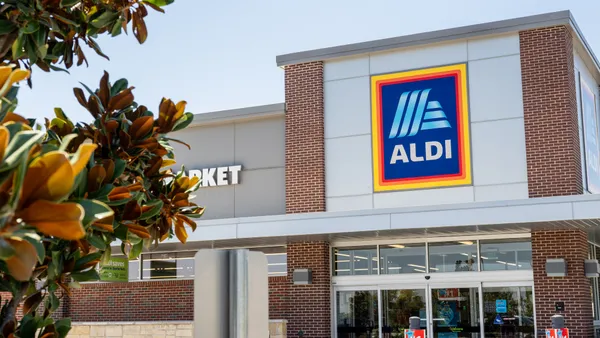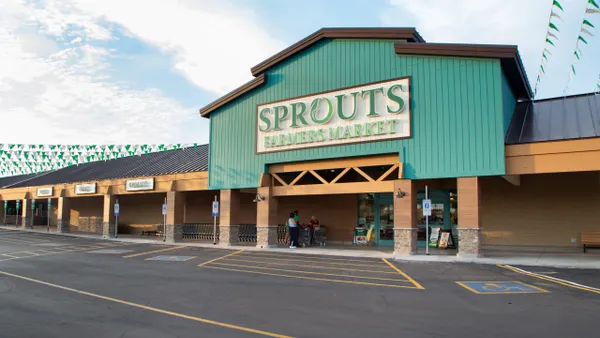Dive Brief:
- Cub Foods plans to operate temporary grocery stores at the locations of two of its Minneapolis supermarkets that were forced to close after being damaged by protesters in the wake of the death of George Floyd, the food retailer announced. The grocer said it plans to rebuild the closed locations using input from local residents, but didn’t indicate when the stores would reopen.
- The temporary stores, each about 13,000 square feet in size, will carry a limited assortment of items, including fresh produce, meat and dairy products, and other grocery items, according to Cub Foods. The locations, which are expected to begin service in July, will also have pharmacies and offer grocery pickup services.
- Cub Foods will also provide an hourly bus service to full-size stores located several miles from the stores that it is rebuilding. “Cub is actively involved in our communities and it is our responsibility to roll-up our sleeves and find solutions to help meet the needs of our neighbors, family, and friends while our Broadway and Lake Street stores are under construction,” Cub Foods CEO Mike Stigers said in a statement.
Dive Insight:
Cub Foods' efforts to keep serving people who had shopped at its shuttered Minneapolis stores reflects the lack of healthy food access that afflicts many communities in the United States.
The closure of the Lake Street and Broadway Avenue Cub Foods locations as well as other local grocery stores has made it difficult for local residents to purchase fresh foods, according to the Minneapolis/St.Paul Business Journal.
Cub Foods operates 79 grocery stores in Minnesota and Illinois and is a division of United Natural Foods, Inc. (UNFI). UNFI, which also runs supermarkets under the Shoppers Food & Pharmacy banner, plans eventually to divest those locations but announced in May that it had suspended plans to sell or close stores during the pandemic.
“The thought of saying to an underserved, difficult market that we were going to close a store that they relied on was just not something we could morally get our head around,” CEO Steve Spinner said during a Q&A session at BMO's "Farm to Market" conference in May.
The two Minneapolis Cub stores that are being rebuilt are owned by Jerry's Foods, which operates the locations under a franchise agreement with the grocer.
Nationwide, about 54.4 million people live in areas that do not have ready access to a supermarket, according to the USDA. The agency defines urban areas with “low access” to a full-service food retailer as those that are at least a half-mile from such a store. In rural areas, people who are more than 10 miles from a supermarket fall into that category.
Securing access to fresh food for residents of areas considered “food deserts” can spur local leaders to step in where grocers haven't.
In Tulsa, Oklahoma, for example, Mayor G.T. Bynum on Friday heralded the groundbreaking for a new grocery store as "the result of the relentless pursuit of bringing a grocery store to" a part of the city without convenient access to a supermarket, KTUL reported. The new store, known as Oasis Fresh Market, is the result of a joint effort of the city, the Tulsa Development Authority, and several foundations.









